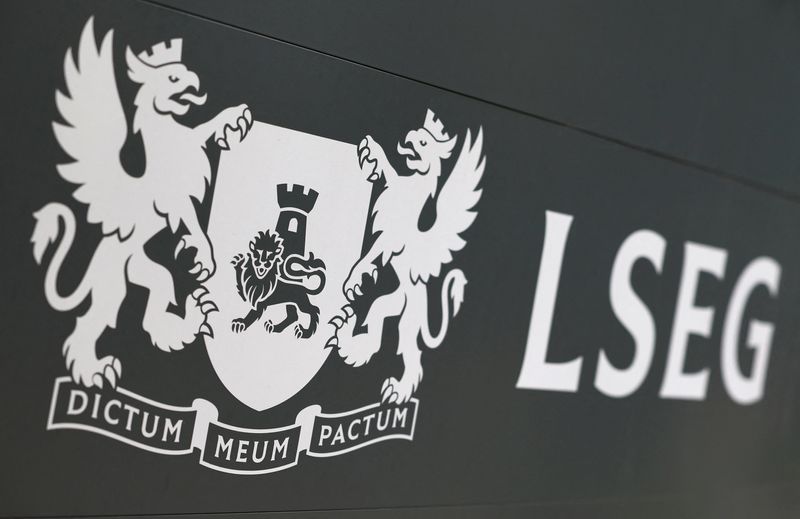By Pranav Kashyap, Sruthi Shankar and Khushi Singh
(Reuters) -Britain's benchmark FTSE 100 stock index scored its third consecutive record high on Thursday, led by miner Anglo American (JO:AGLJ) on a buyout offer from BHP Group (LON:BHPB), while investors cheered earnings from several blue-chip firms including Unilever (LON:ULVR), AstraZeneca (NASDAQ:AZN) and Barclays (LON:BARC).
The blue-chip FTSE 100 ended the session up 0.5%, after hitting a fresh all-time high of 8,105.59 points earlier in the day.
Anglo American surged 16.1% to an more than 10-month high after BHP made an offer to buy the London-listed miner, valuing its share capital at $38.8 billion.
The deal would create the world's biggest copper miner with around 10% of global output. BHP's London-listed stock, however, fell 2.2%.
"BHP has a clear idea what it wants from buying Anglo American – exposure to large, low-cost and long-life assets in iron ore, metallurgical coal, potash and copper. Scale matters in the mining sector and Anglo has the right kind of assets to keep BHP generating big bucks for decades into the future, said Dan Coatsworth, investment analyst at AJ Bell.
The FTSE 350 industrial metal miners index rose 2.0% on the news.
The pharma and biotech index was the top sectoral performer, rising 3.9%, led by a 5.9% jump in AstraZeneca shares after the drugmaker reported quarterly revenue and profit above market estimates.
The personal care, drug and grocery stores index followed with a 3.1% rise, supported by a 5.7% boost in Unilever shares after the consumer goods company posted better-than-expected first-quarter sales growth.
Barclays climbed 6.7% as the lender's first quarter trading was better than expected despite a 12% fall in profit.

On the flipside, the mid-cap FTSE 250 fell 0.6%, with WH Smith (LON:SMWH) sliding 6% after the British high street and travel hub retailer flagged lower growth at start of the second half.
Meanwhile, data showed British retailers suffered their worst April for sales since 2020, when the country was in its first COVID-19 lockdown.